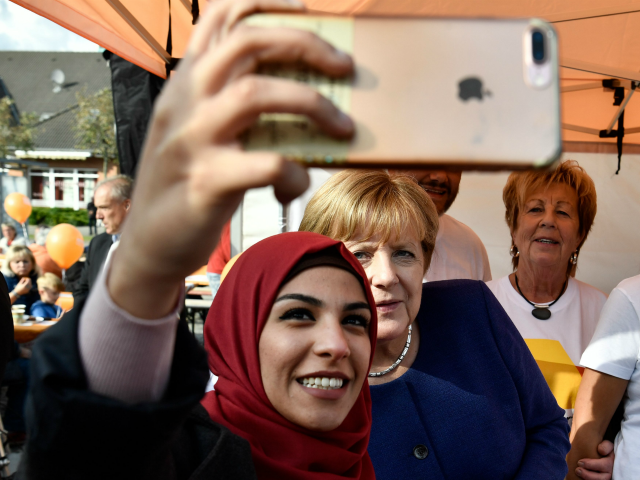Newly released statistics have revealed that the German population grew by 346,000 in 2016 due to mass migration, in a year where the number of births in the country did not exceed the number of deaths.
The statistics from the German Federal Statistical Office show that despite the very low birthrate in Germany, the population has continued to grow through mass migration. While the population grew by 346,000 in 2016, the numbers are still well below the growth of 978,000 in 2015 during the height of the migrant crisis, Die Welt reports.
According to the statistics office, 498,000 individuals migrated to Germany in total in 2016 but the German birth rate has remained very low with 118,000 more people dying in Germany than were born.
The number of foreigners as a part of the overall German population has also increased from 10.5 per cent in 2015 to 11.2 per cent in 2016 and the number is expected to continue growing in the future.
Analysts have predicted that Germany will again see population growth in 2017 as mass migration is once again expected to be the sole driver of growth as birthrates continue to lag behind deaths.
450,000 individuals are thought to have moved to Germany in 2017 and the deficit of deaths over births could be as high as 190,000.
In cities like Frankfurt, mass migration has changed the overall demographics of the city as native Germans have become a minority for the first time.
The mass influx of foreigners has also put strains on the German state with the costs for asylum seekers and other migrants numbering in the billions of euros.
Despite early predictions by economists that mass migration would lead to an economic boom for Germany, others have predicted that mass migration will harm long-term economic growth in the country.
Mass migration has also brought increasing levels of crime with the German government only recently admitting the causal link between the rise of violent criminality and mass migration.

COMMENTS
Please let us know if you're having issues with commenting.